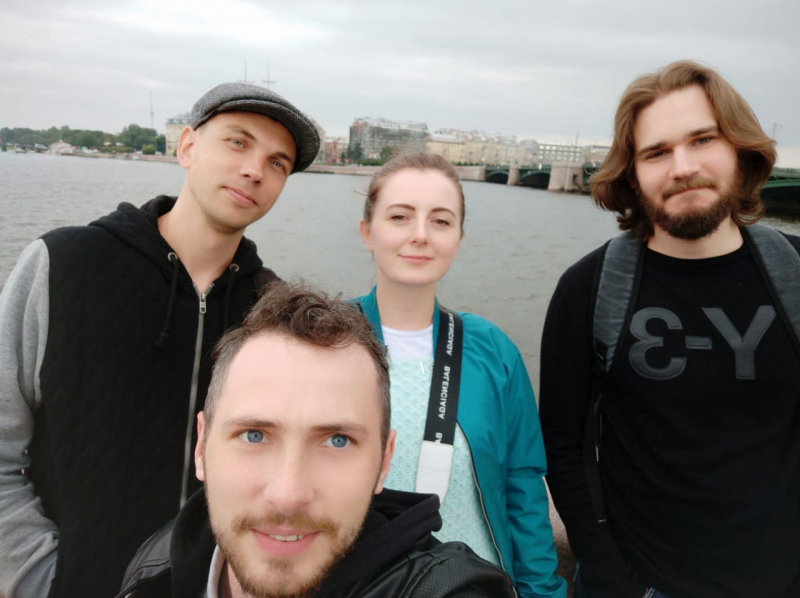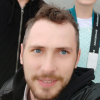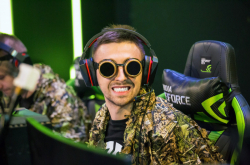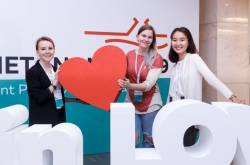You were a PhD student when you decided to enroll in a Master’s program at ITMO University. What prompted that decision?
I completed a five-year Specialist’s degree at Far Eastern Federal University (FEFU) and then enrolled in a PhD program at the Institute of Automation and Control Processes in Vladivostok. In my third year, my colleague Aleksandr Kuchmizhak, who has worked for years with Sergey Makarov (head of Laboratory of Hybrid Nanophotonics and Optoelectronics at ITMO – Ed.), asked me if I’d like to take a, so to speak, two-year business trip to a major international laboratory, learn from their experience, and come back to share what I’ve learned. And so I came here to study and work at ITMO’s Faculty of Physics and Engineering.
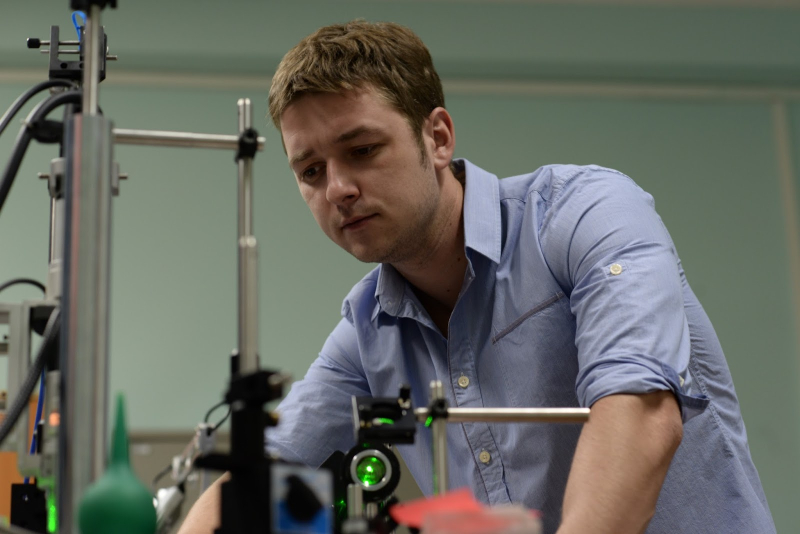
What were your impressions of Master’s studies at ITMO?
I enrolled in the Nanophotonics and Metamaterials program – it’s where they train great theoretical physicists. The program is awesome, with well-developed curricula and a lot of elective classes and intensive courses. But I wasn’t a good fit for theoretical physics – three years of doctorate studies can let your guard down, and I’m no longer able to do second-order differential equations in my head. After the first semester, I transferred to the Laser Technologies program to free up more time for lab work.
Education here is at a high professional level and there are many high-profile specialists at work. Everyone is a teacher by day and a researcher by night, so to say. It wasn’t like this at FEFU; for now, it doesn’t have so many renowned researchers capable of doing the same things.
I really liked that at the Faculty of Physics and Engineering, the emphasis is on new trends and ideas; nobody’s following a 50-years-old Soviet curriculum; quantum mechanics classes include Landau and Lifshitz alongside new material. The studies are a lot more intense, so you can’t just do nothing and still get good grades.
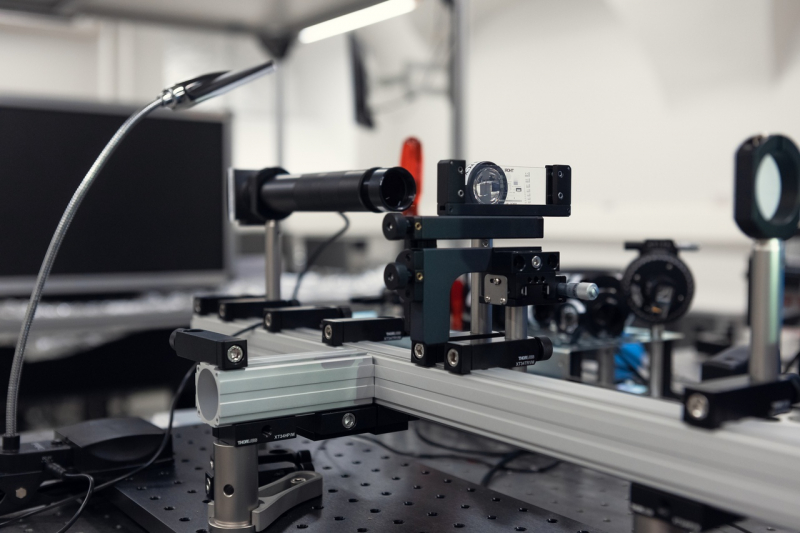
What projects were you working on in St. Petersburg?
I’ve been able to work on several projects in different fields, but all were in some way related to nanostructured surfaces and the study of their optical properties. These were complex ablation projects in which multilayer metal-dielectric surfaces were treated with lasers to create encoded messages. And, of course, I worked with perovskites – it’s impossible to come to the faculty and not stumble on a perovskite (laughs). I worked on the development of microlasers based on some variations of this material.
What potential benefits could these projects bring?
When we’re talking about microlaser structures, we’re talking about a dream harbored by many in the scientific community – to create self-bonded photon structures which we can manipulate with light on the macro level and redirect; then, we shift the wavelength, creating chips which we can use for computations and analysis. Someday, silicon electronics will make way for photonic ones.
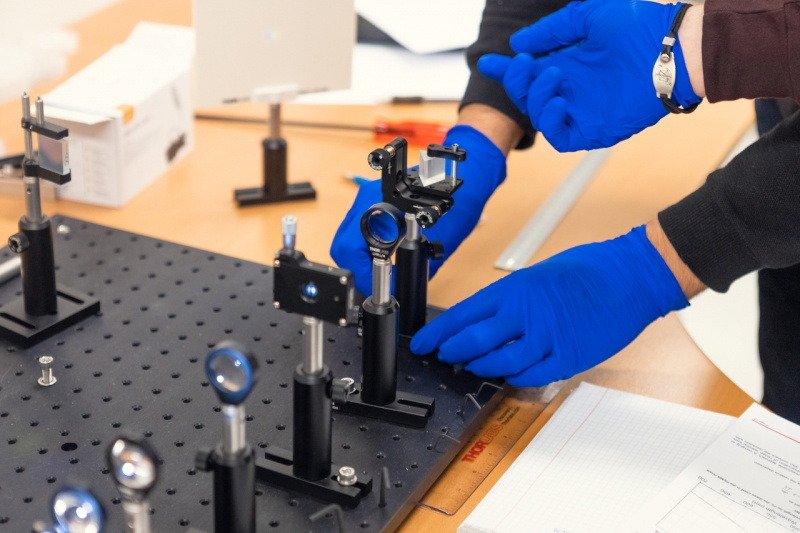
How was working here in St. Petersburg different from what you’ve experienced in Vladivostok?
ITMO is on a whole other level – here, you’ve got an international laboratory with a great number of staff following a different working model. I really liked the way the working process is optimized here. Here, you’ve got a clear, regulated work schedule.
There’s plenty of equipment and sealed compartments that allow you to work with chemicals in a nitrogen environment. We don’t have that in Vladivostok, so we’re limited to material that can be worked with in a regular air environment.
In addition, there are so many international specialists here. I’ve worked with scientists from other countries in Vladivostok, too, but it’s on another level at Pavel Belov’s lab. There’s always some big name here hosting workshops and giving presentations. Here, I was directly next to a famous person for the first time in my life. It was Konstantin Novoselov, who won the Nobel Prize for his studies on graphene, during his tour of the lab.
So you’ll have much to tell after this?
My research advisor was Sergey Makarov – Russia’s most notable young scientist who has shaken the president’s hand. That is already worth boasting about.
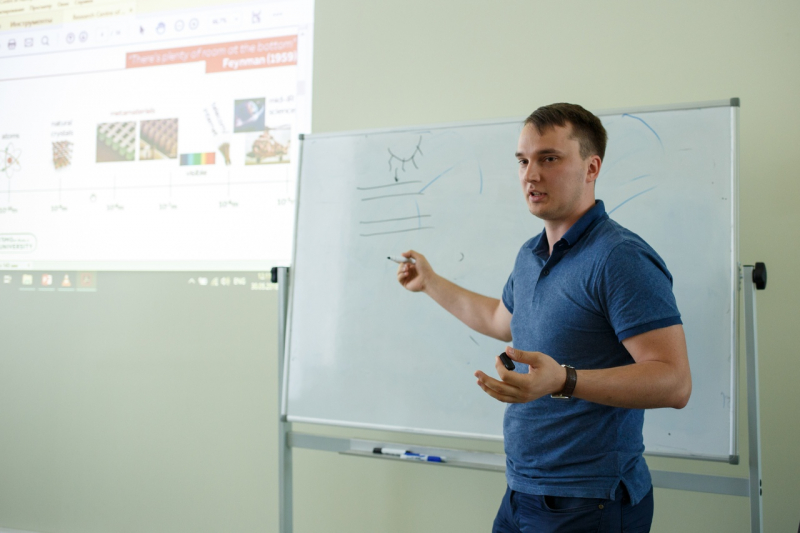
But in truth, there is no fundamental difference. Both at ITMO and FEFU, we explore science using the same principles and approaches; the difference is in the materials available and how easy it is to exchange knowledge.
On St. Petersburg
What are your impressions of the city?
St. Petersburg is a large, beautiful city that actually is a lot like Vladivostok. If you make Vladivostok flat, it would be like a smaller copy of St. Pete. I had to get used to having so many people around. I really liked how modern the city is in terms of infrastructure. You can feel that civilization reaches here faster than it does Vladivostok.
I loved having the bars-galore Rubinstein St. just steps away from the Lomonosova St. building, so props to whoever came up with that – it’s a great motivation to come to work (laughs). People here are kind and different, they don’t hesitate to express themselves and they love to do that, which is rarer in Vladivostok.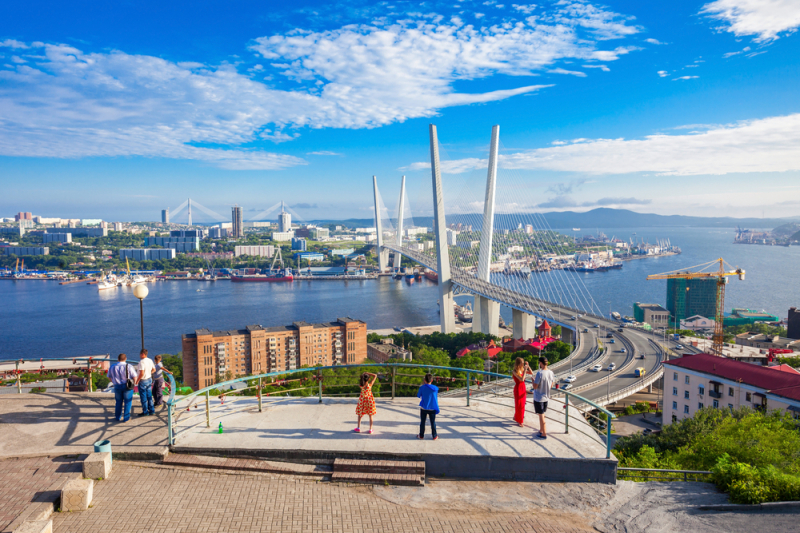
Is there anything you’ll have to get used to when you go back there?
Not having contactless payment available everywhere. I never used cash in my two years in St. Petersburg.
And the climate, too. Everyone says St. Petersburg is a city of rain, but I think they’re mistaken. Maybe I’ve been lucky like that, but anyone who says that just hasn’t been to Vladivostok. There’s nothing but rain there.
On future plans
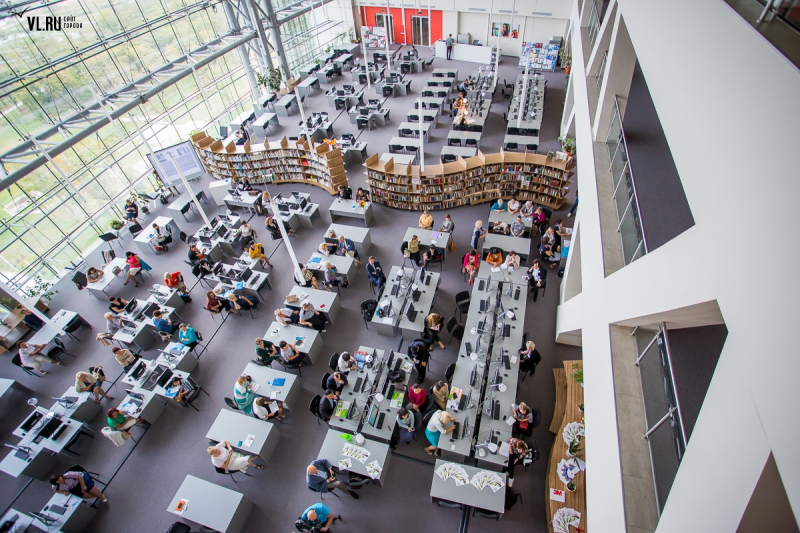
Are you currently working at FEFU?
I am, as a technical engineer. In the future, I’d like to make junior researcher and re-enroll in my PhD studies.
Did you consider staying in St. Petersburg?
Of course. I even had offers to get my PhD at ITMO.
Was it difficult to say no to those?
If you ask my colleagues at ITMO, they’ll say no, it was easy. But in fact, I took a long time thinking and considering my options. PhysTech (Faculty of Physics and Engineering – Ed.) is great and there’s room to grow, but Vladivostok won over in the end.
How so?
I’ve spent five or six years in Vladivostok and become part of a close-knit team. And it was the plan from the start – a temporary work trip. I have responsibilities here, in the Far East. I’d like to write a PhD thesis with my research advisor. And anyway, my going back to Vladivostok doesn’t mean I can’t go to St. Petersburg and work at ITMO.
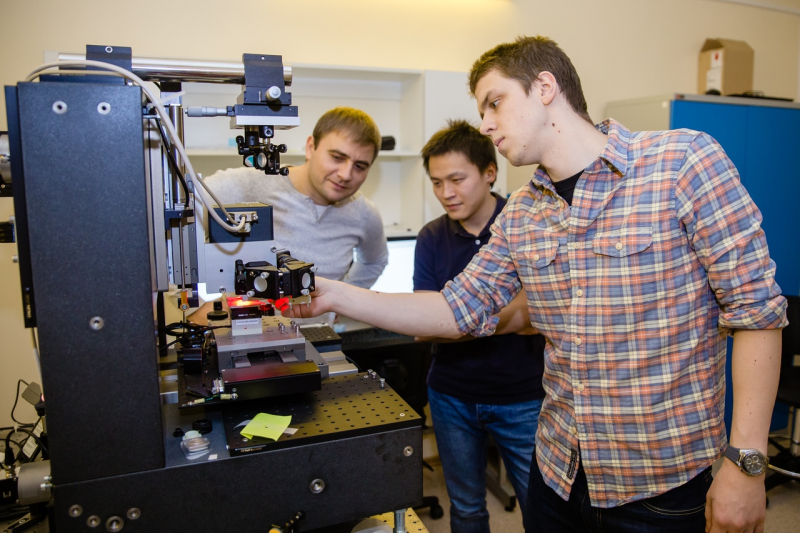
How are you adapting to your old lab and colleagues?
My research advisor and I have maintained contact over the past two years. We’ve had joint research and reported on our progress, constantly planning our next actions and considering which ideas and fields to explore.
I also went to Vladivostok once this year already, though it was only supposed to be a layover. My goal was to bring samples from ITMO to Wuhan University – that was in February. By the time I got to Vladivostok, it became clear that the rest of the trip was cancelled, so I worked there for three weeks before returning to St. Petersburg. We quickly figured out what we could do with the materials and samples I’d brought. It was like a business trip inside a business trip.
What’s changed since you left Vladivostok?
In my absence, my colleagues purchased more equipment after receiving guidance from ITMO on its experience with several devices. We’re starting to make way on following a set schedule with time distributed between staff. We’re expanding, too, and establishing a clean room similar to the one they’ve got at ITMO, so we’ll also be adopting your experience of working in ultraclean spaces.
If you were to sum it up, what did you personally gain in these two years?
I definitely gained a lot of contacts in various fields of science at ITMO and abroad. It’s very important to have the opportunity to talk to people and maintain relations. Besides, I now know where I should go next in Vladivostok to make things even better.
